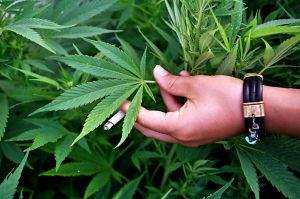Riverside Marijuana Dispensary Ban Upheld By Appellate Court
The city of Riverside will now continue in its quest to shut down medical marijuana dispensaries within its district, following an appellate court decision that upheld the city’s authority to do so. 
Los Angeles marijuana lawyers are concerned about the precedence this sets with regard to other cases. However, conflicting rulings abound, and in fact, this ruling is not the end of the appellate case.
Disappointingly, this ruling serves to overturn a ruling in August by a Superior Court Judge. He had ruled that local government’s cannot effect a ban on medical marijuana storefronts, so long as those facilities are operating under the state laws that authorize their existence.
Despite the fact that the Superior Court’s decision had only addressed the issue of on particular dispensary, it made an impact on the city’s effort to ban dispensaries as a whole.
But this does not meant the case is over. In fact, the appellate court’s ruling actually only addresses a portion of the case, which was the city’s preliminary injunction, imposed on the storefront dispensary in question when the appeal was first filed. This injunction would have shuttered the storefront operation while the appeal is pending. Now that the injunction has been restored, this storefront – and others – will be shut down while the appeal is ongoing.
The Division 2 appellate court is the same that made the ruling in November of last year, upholding the rights of local governments to ban medical marijuana dispensaries if they deemed proper to do so. It was the first court in the state to address this issue, but it certainly wasn’t the last.
Not only have several other courts weighed in on similar questions and reached very different conclusions, this particular ruling is already being challenged.
The Superior Court judge who made the decision to overturn the ban in Riverside also overturned another ban on two other dispensaries in May. However, that order too was struck down by an appellate court.
The state Supreme Court is now taking on several of those cases for review.
What truly complicates all of this is the fact that while medical marijuana is perfectly legal in California, federal law views it as illegal under all circumstances.
This latest ruling should not have any bearing on the decision reached by the state Supreme Court.
An attorney for Riverside was later quoted as saying that he did not anticipate any other trial courts siding with dispensaries on the issue of local government bans or injunctions. The attorney went on to say that while cease-and-desist letters will be sent out immediately to both store owners and property owners who rent to them, the process may still take some time.
If dispensaries refuse to close – which they very well might – the city has said it will take them to court to force them to do so. He further urged all dispensaries to close until such time that the U.S. Supreme Court settles the conflicting rulings once and for all.
We don’t believe that approach is necessary or prudent, and we believe in fighting for the rights of patients and store owners alike.
Continue reading
 Cannabis Law Group's Medical Marijuana Legal Blog
Cannabis Law Group's Medical Marijuana Legal Blog













